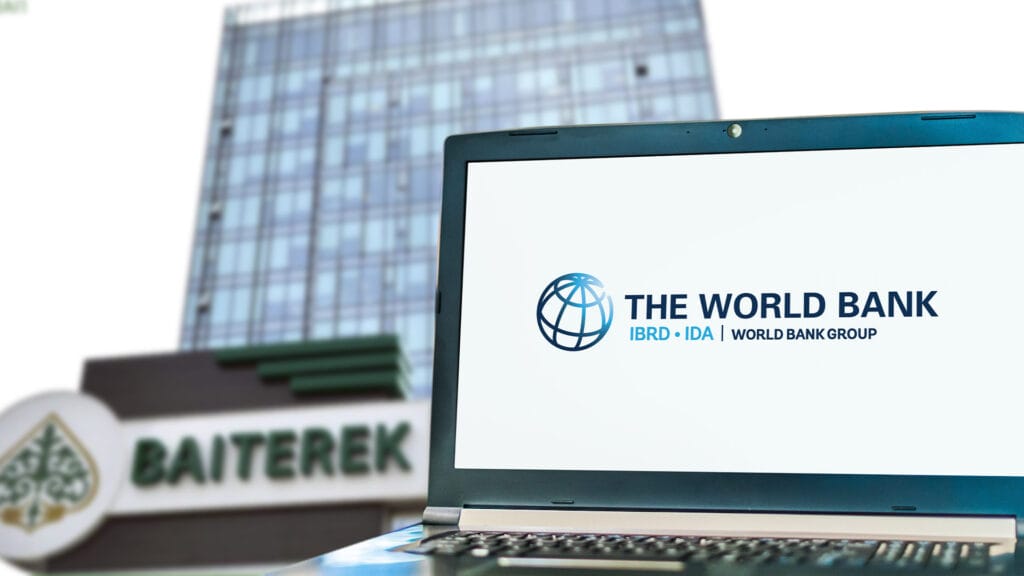World Bank advises Baiterek to make changes and become more transparent

According to the World Bank, the organizational structure of the Baiterek holding isn’t transparent enough and its ability to produce influence on the economic growth and creation of effective financial markets is limited. The holding also doesn’t do much to attract private capital. To change the situation, the World Bank suggests reforming the organization.
Currently, Baiterek controls eight development institutes responsible for certain industries including agriculture, construction and housing sectors. The holding also controls entities such as Qazaqstan Investment Corporation, Development Bank of Kazakhstan, DAMU Entrepreneurship Development Fund and Kazakh Export, an export insurance company.
Micro, small and medium-sized businesses are supposed to be beneficiaries of Baiterek activities. According to the World Bank’s report, Baiterek must facilitate an increase in sales and new jobs. However, it is impossible to evaluate the actual effect of the Baiterek work due to the ineffective methodology the holding uses. As a result, the calculations made by the holding are often inaccurate, according to the report.
The World Bank also believes that Baiterek doesn’t pay much attention to the development of the financial market in Kazakhstan to improve complementarity at the level of transactions and financing. The holding’s strategy must cover climate financing and the introduction of an Earth-friendly approach, which would be an additional boost for the ESG agenda within the country.
The authors of the report have also offered a set of recommendations to the country’s cabinet and other public authorities. For example, the Ministry of Finance was invited to «improve the process of data collection and publication» with a focus on the holding’s debt and guarantees because this is very important not only to investors but to the public as well. The World Bank also suggested that Baiterek split financial support from the holding itself and financing of various state programs where Baiterek is engaged. The holding needs to improve its accountability at the expense of qualified employees and develop a new evaluation system for medium-term impact, financial sustainability and market behavior.
The government needs to raise the transparency of the holding’s operations, including clients, partners, mediators and final beneficiaries. The World Bank also recommends that the holding boost the share of private funding by attracting third-party shareholders. Currently, the government is the sole shareholder of Baiterek, which raises private money through bonds. Once this approach is changed, it will improve risk management and mobilize additional resources for sustainable development goals. The presence of external debt creates contingent liabilities for the state budget and requires a mechanism for managing medium-term debt, the report says.
Finally, the World Bank proposes reforming the structure of Baiterek subsidiaries to change the managing model within the holding. Currently, all the holding subsidiaries have their own management and are run by Baiterek as separate divisions. If a new structure is adopted, the holding’s subsidiaries will be divided into three business lines: commercialization and privatization, strategic funding and subsidy management. Each of these business lines will have an independent and specialized council and an independent executive team. Existing subsidiaries will be controlled by one of these three groups.
Over the past two months, the holding acquired big stakes (49% each) in three third-party businesses: TaiynshaZher Plus, a big producer of grain and beans, Avantyurin and Qarqyn Group.
At the end of November, some media outlets reported that Baiterek in conjunction with the Samruk-Kazyna fund was going to take part in the distribution of $3.2 billion from the Unified Accumulative Pension Fund (UAPF) between different infrastructural projects. Part of this money will be allocated for the construction and modernization of power stations in several regions. In turn, the UAPF will buy bonds that Baiterek and Samruk Kazyna are going to issue.
The World Bank admitted that the holding has achieved success in certain areas. For instance, since 2013, when Baiterek was established, it has managed to increase the value of its assets from 5.6% of the national GDP to 12%. At the same time, more than 90% of all issued loans are concentrated in four sectors, while mortgage and construction loans accounted for half of the holding’s portfolio. The ratio of the holding’s own money and borrowed funds has risen from 3.8 to 4.9 over the past three years.
Over the first nine months of this year, Baiterek reported a 2.3-time increase in revenue to $870 million. The holding’s operational income over the period from January to September rose twofold to $1.2 billion; net commission income increased by 59.3% to $1.1 billion. The holding’s profit before tax reached $1 billion, a 2.2-time increase over the similar rate last year.
During the reporting period, Baiterek’s assets rose by 9.3% to $29 billion, liabilities rose by 6% to $23.2 billion and capital rose by 25.1%.

